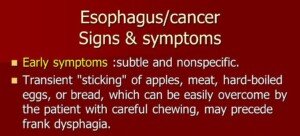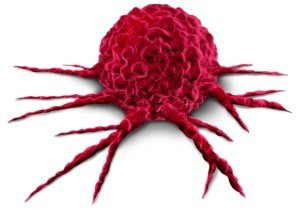Is it possible for esophageal cancer to still be local – not having spread – by the time a person begins feeling the first symptom?
There is the case of a 34-year-old woman who was experiencing symptoms of esophageal cancer.
But she was misdiagnosed for many weeks.
She made a YouTube video describing her symptoms and misdiagnoses.
She didn’t live that much longer after undergoing treatment.
Some comments to her video were to the effect of, “The misdiagnosis cost this woman her life,” and, “She’d be alive today if they’d examined her properly.”
How long would she have lived had the cancer been caught sooner – and – if caught sooner, would it have still been localized?
Or was it probably spread at that earlier point anyways?
As appalling as the misdiagnosis of this young woman was, it’s actually quite possible that had her esophageal cancer been identified within several days of her first doctor visit, she would not have survived much longer than she actually had.
Can a Localized Esophageal Cancer Cause Symptoms?

Freepik
Or, to put this another way, when someone first begins having symptoms of esophageal cancer, is it always at least in the lymph nodes or even spread to distant sites?
“Keep in mind the difference between the preoperative stage — which can be inaccurate — and the final, pathological stage after the operation, which is the ‘true’ stage,” says Alex Little, MD, a thoracic surgeon with a special interest in esophageal and lung cancer.
“In America almost all patients who get an operation are in stage 3.
“This means that, yes, the cancer has spread to lymph nodes.
“Nearly all the rest of the patient pool has metastatic disease and are in stage 4.
“So nearly all new patients have spread at the time of diagnosis.”
The younger a patient is, and especially if female, the more likely they will initially be misdiagnosed.
The First Symptom of Esophageal Cancer
Almost always, says Dr. Little, it’s a sensation that food isn’t properly going down the esophagus.
Patients may describe this as food getting stuck or trapped in the chest or throat, or food sticking in these areas.
Usually, people won’t think of esophageal cancer, hence delaying medical consultation.
Delays can also be caused by lack of medical insurance or believing that it’s some kind of benign digestive issue.
“It seems to be the case that by the time the primary tumor causes any symptoms, it has begun to spread at least to regional lymph nodes,” says Dr. Little.
What makes esophageal cancer detected when still localized?
“With few exceptions, the only stage1 patients (all cancer limited to the esophagus) are patients with a Barrett’s esophagus who undergo screening endoscopies because of the possibility of cancer development, and an early cancer is found,” explains Dr. Little.
“The less spread, the better the prognosis, so — the shorter the time from symptom onset to diagnosis and treatment, the better.”
Barrett’s esophagus is a premalignant condition that can transform into esophageal cancer.
Here is the link to the video in which the young woman describes her esophageal cancer symptoms.

 Alex Little, MD, trained in general and thoracic surgery at the Johns Hopkins University School of Medicine; has been active in national thoracic surgical societies as a speaker and participant, and served as president of the American College of Chest Physicians. He’s the author of “Cracking Chests: How Thoracic Surgery Got from Rocks to Sticks,” available on Amazon.
Alex Little, MD, trained in general and thoracic surgery at the Johns Hopkins University School of Medicine; has been active in national thoracic surgical societies as a speaker and participant, and served as president of the American College of Chest Physicians. He’s the author of “Cracking Chests: How Thoracic Surgery Got from Rocks to Sticks,” available on Amazon.
 Lorra Garrick has been covering medical, fitness and cybersecurity topics for many years, having written thousands of articles for print magazines and websites, including as a ghostwriter. She’s also a former ACE-certified personal trainer.
Lorra Garrick has been covering medical, fitness and cybersecurity topics for many years, having written thousands of articles for print magazines and websites, including as a ghostwriter. She’s also a former ACE-certified personal trainer.
.



























